Importance of maintaining independence for the elderly
Tags
Elderly Mobility and Independence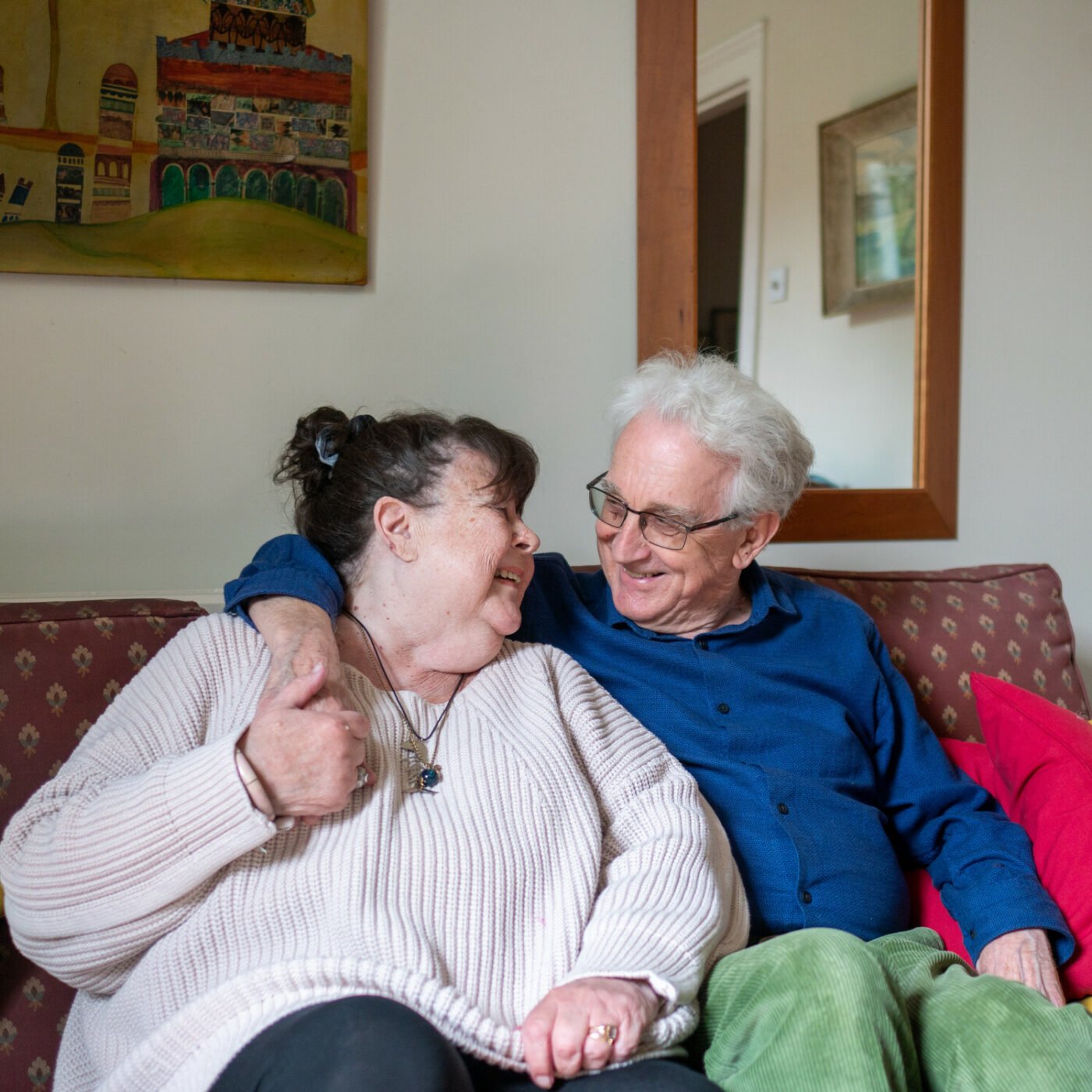
Why is it important to promote independence in the elderly?
At a very basic level, independence means having autonomy over your own life. Being independent gives a person a strong sense of control – doing the things you want to do, when you want to do them.
Independence usually begins in our late teens and early twenties, it’s when we traditionally move out of the family home, start a career, and begin to shape our own individual lifestyles. Many of us will live independent lives for decades – choosing whether we get married, have children, or how we spend our time.
However as we get older, our independence can sometimes feel under threat. Our minds and bodies can become less able, either through wear and tear or illness, which makes carrying out certain daily activities difficult without assistance. While our abilities may change, our desire for independence rarely does. This is where problems can occur if an older person feels that they no longer have a say over how things are done in their day to day life. This loss of independence can lead to low mood, a lack of motivation, as well as feelings of isolation or hopelessness.
Helping an older person stay as independent as possible is really important to both physical and mental health. It helps them maximise their quality of life, provides a sense of purpose, and can boost their self-esteem and confidence. If they’re receiving family support, being able to do some things independently can help them feel useful, keep them mentally and physically active, and often means they see themselves as less of a burden on others.
How do you help an elderly person stay independent?
Obviously, how you promote independence in daily living will depend on your loved one’s mental and physical abilities. The good news is there are a broad range of things you can try, and often even the smallest gestures can make a big difference.
It’s also worth noting that not all older people will crave a high level of independence. For some older people the thought of complete independence can be a little scary, especially if they’re living with a chronic condition, have recently been poorly or had a nasty fall. Always allow the older person to take the lead and help them do as much or as little as they can. Independence is all about having the choice, and feeling in control.
Setting their own daily routine
This means giving an older person the opportunity to choose how they spend their day – from what time they wake up, right through to when they go to bed. In some situations, some compromises may need to be made, for example if they’re receiving visits from a carer then certain tasks need to wait until they arrive. However you should always work through these hurdles together and come to a solution that works for everyone. Be aware that sometimes, depending on how a person is feeling on a certain day, routines will need to change, so make sure there’s some scope for that.
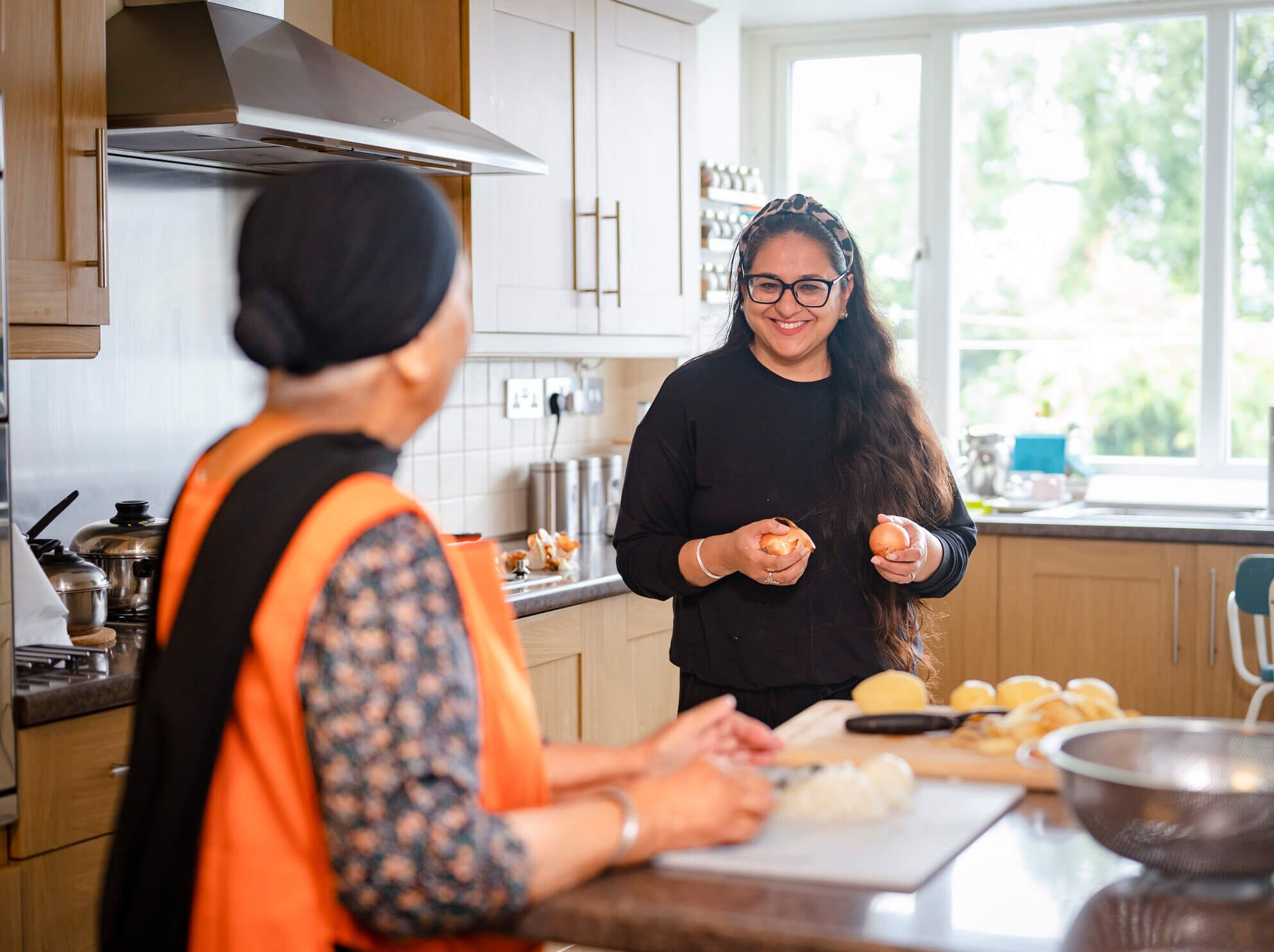
Meal planning and eating
Being able to eat what we want, when we want might seem small – but these habits and abilities can change drastically in later life, meaning it’s often an area where people feel they lack control. For example, if they’re unable to cook for themselves, meal times may shift according to when someone can come and help. If they struggle with chewing, softer foods they’re offered may not suit their tastes or feel reminiscent of baby food.
Always involve an older person as much as you can when planning meals for the week, and be clear when asking them what they’d like to eat – you may find it easier to sit down together an make a shopping list, or order groceries online. It can also help to ensure the cupboards and fridge are stocked with some of their firm favourites so that they have different options if they change their mind from what was originally planned.
At meal times make sure they have cutlery that they can easily grip and offer to cut up or prepare food so it’s easier to eat, if required. If they have dementia it may help to use a plate in a bright colour so they can distinguish it from the table. An older person may be slower at eating but still fully capable of doing it without help, so don’t rush them at meal times.
Looking and feeling their best
Choosing what we wear and how we style our hair is an incredibly personal preference, and an important one to maintain in later life. It’s a way for on older person to express themselves and can renew their sense of identity at a time in life where they may feel a less visible.
It’s important to allow an older person to choose their own clothes. If they choose something inappropriate to a particular occasion or the weather, work with them to suggest a similar alternative. if they struggle with buttons or fiddly fastenings, help them to find more adaptive options that still fit their style, or offer to take some items to a tailor to replace fastenings with easy pull zips or velcro.
You may have your own ideas of what you think they should wear or what hairstyle would suit them better, but don’t try and project your tastes on to them. Make sure you’re willing to help them achieve the style they want, unless a change would support their independence – for example a shorter hairstyle is often easier to manage.
Staying active
A loss of mobility can be unsettling for an older person, and can lead to them feeling unable to go certain places and do certain things. Gently encouraging movement not only supports better physical health, but can provide a sense of accomplishment and help a person remain part of their community.
Staying active can mean lots of different things, for some it may be as simple as being able to do a little cleaning or tidying around the home. For others it could involve adding some gentle exercise to their weekly routine, or taking a short walk to the shops.
Again, choice is key. If an older person would like to do more exercise – have them choose the type of activity they’d most enjoy. if they’d like to get outside for a stroll more often then ask them to pick the route.
Enjoying hobbies
A hobby is a great way for an older person to take some time for themselves and do something purely for fun. A creative hobby can provide a strong sense of accomplishment, while dedicating time to learning about a particular interest can help keep the mind active.
If your loved one has lost interest in things they used to enjoy or now finds them too difficult, help them find something new.
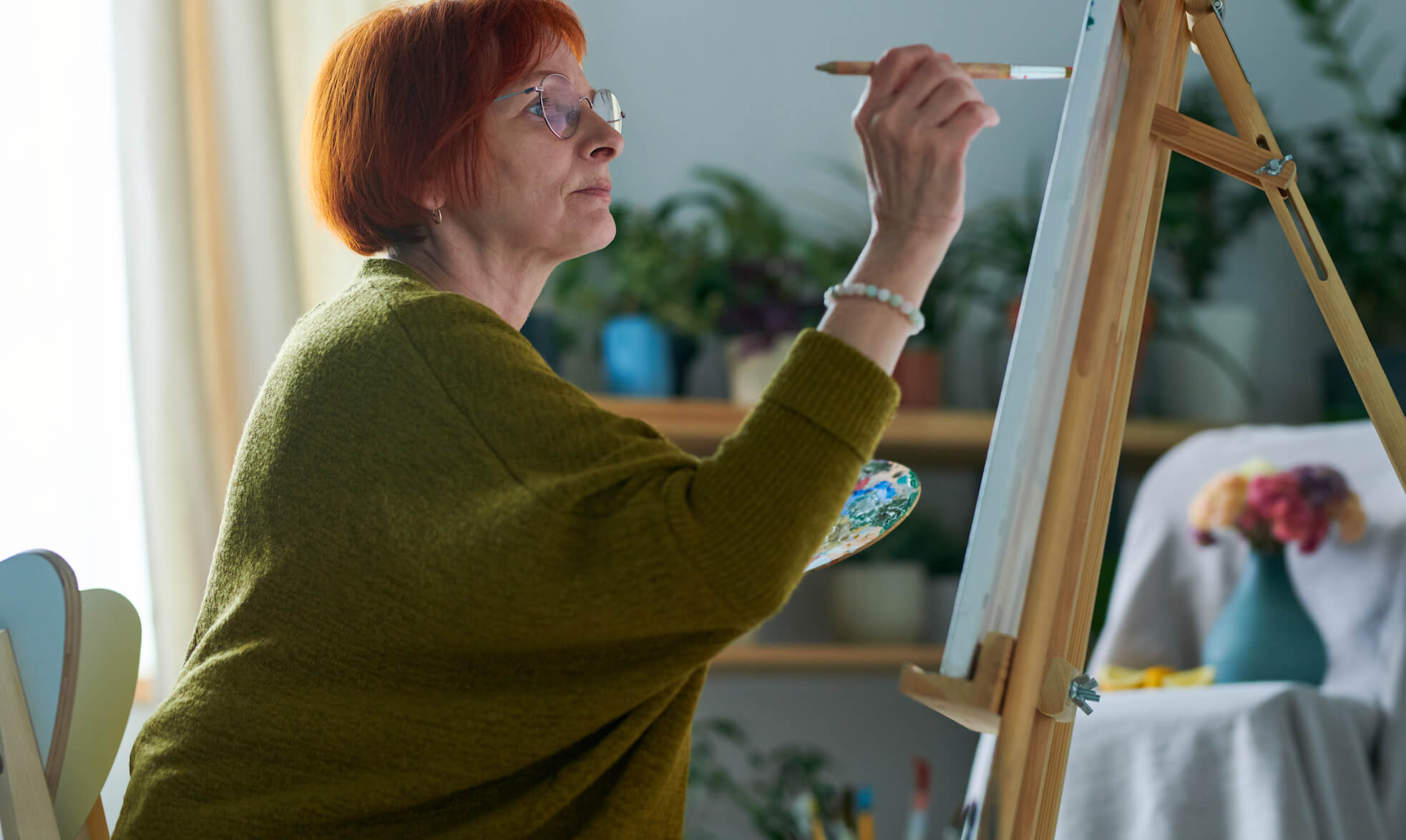
What additional steps can I take to help an older person who lives alone?
Increase home safety
If a loved one can safely live alone, you may wish to make some small changes to their home to offer peace of mind. If they’re living with arthritis and occasionally experience stiffer joints, simple measures, such as installing grab rails can help make their home a safer place for them to live. A video door bell that both you and the older person can monitor can help track who’s coming to the house, and alert you to any odd comings and goings – particularly if a loved one is in the very early stages of dementia. Meanwhile an alarm system that is linked to a central switchboard can help in an emergency.
If your loved one has physical limitations or mobility issues they may experience difficulty in carrying out some daily living activities. It may be possible to rearrange things around the house to suit their situation better. For example, lowering cupboards in the kitchen so that they can easily and safely reach what they need.
If they’re at risk of slipping in the bath, consider replacing the bathroom with a wet room with level access and a shower seat, so that they can manage their personal hygiene independently, and you can be sure the risk of them hurting themselves has been minimised.
Help them get social
Everyone should have the chance to see old friends, and make new ones. If they’re part of a social club or community group, offer to drive them to their meet-ups or attend with them if they’d like you to.
If they’re feeling lonely and would like to expand their social circle, try sitting down with them and helping them find local social activities or friendship groups they may want to try. Age UK’s directory, and Re-engage are good places to start exploring options.
How Live-in care can help
If your loved one needs long-term care live-in care could be a suitable solution. Live-in carers understand the importance of enabling the people they care for to remain as independent as possible, while offering as much or as little support with everyday tasks that’s required.
For family and friends, the peace of mind of knowing that there’s always someone around for your loved one to call on when they need any help is invaluable.
The ability to make decisions about different aspects of daily life is important to most people, let alone elderly loved ones who have become accustomed to a whole lifetime of independence.
Deciding what time to go to bed, where to go for a day trip or what to have for dinner is not always easy in a residential care home or nursing home and it can even be difficult in the elderly person’s own home if they have to rely on assistance from visiting carers.
However, with a live-in carer who is solely there to provide the one-to-one care that your loved one needs, your loved one should be able to enjoy independent living for as long as possible. They will be able to safely enjoy the things their community has to offer and maintain their relationships with friends and neighbours with the support of a live-in carer.
Read more care guides

The Elder care jargon buster – 49 care terms and their meaning
Like every sector, social care has a lot of its own terminology which can be difficult to get your head around, especially if you’re facing
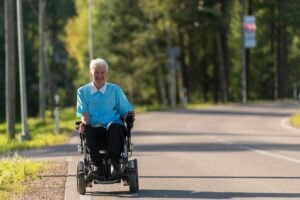
Mobility aids for the elderly to improve daily living
Mobility aids for the elderly to improve daily living As we age, our balance can often become compromised, leading to slips, trips and falls. While
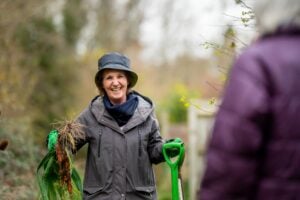
Social groups and activities for older people – how to make new friends over 60
How social connections keep elderly people healthy Losing friends and family members is, unfortunately, a natural part of later life. But it can be detrimental
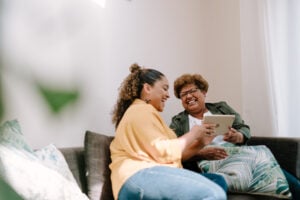
What is a carers assessment?
Caring for an elderly relative is not always easy, particularly if you have a job and a home of your own to run. The carers
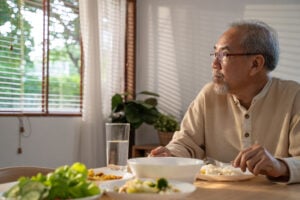
Dealing with a loss of appetite in older adults
Dealing with a loss of appetite in older adults Several factors, such as physical and mental conditions, medications, and vitamin or mineral deficiencies, can influence

Caring for sleep problems in elderly
Caring for sleep problems in elderly Changes in sleeping patterns are frequent in older people, and you may notice that it progressively gets worse over